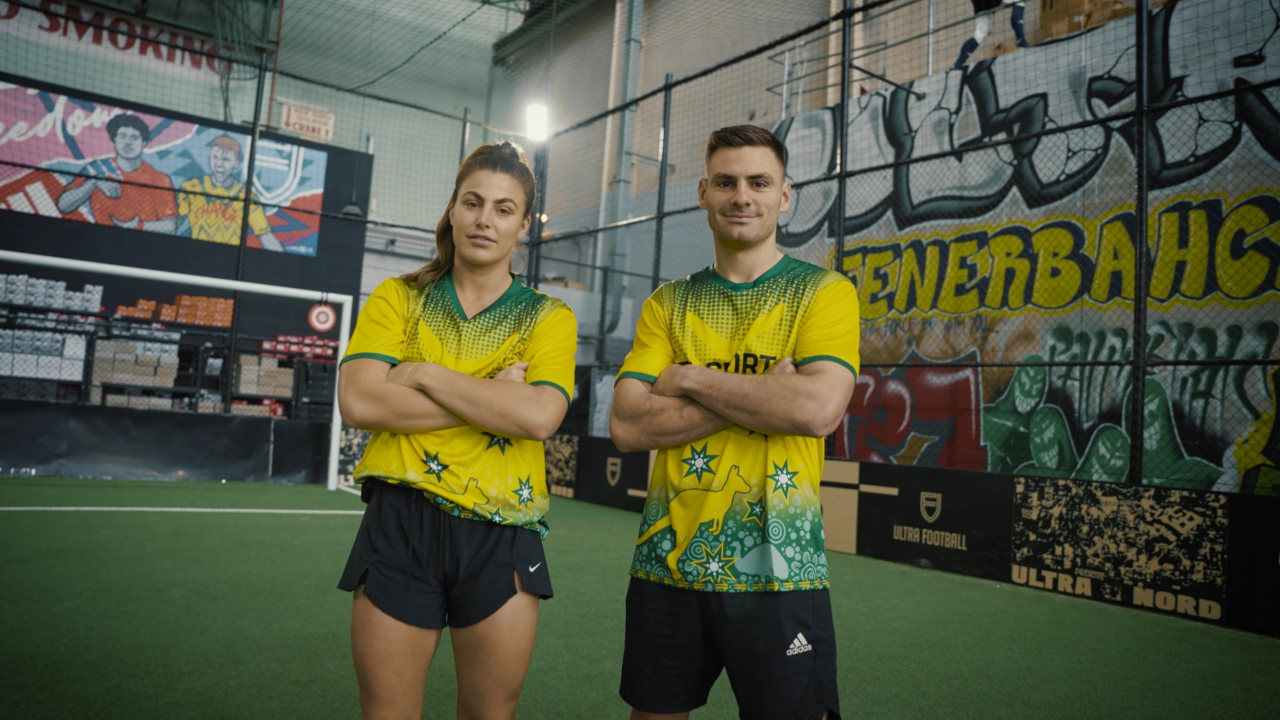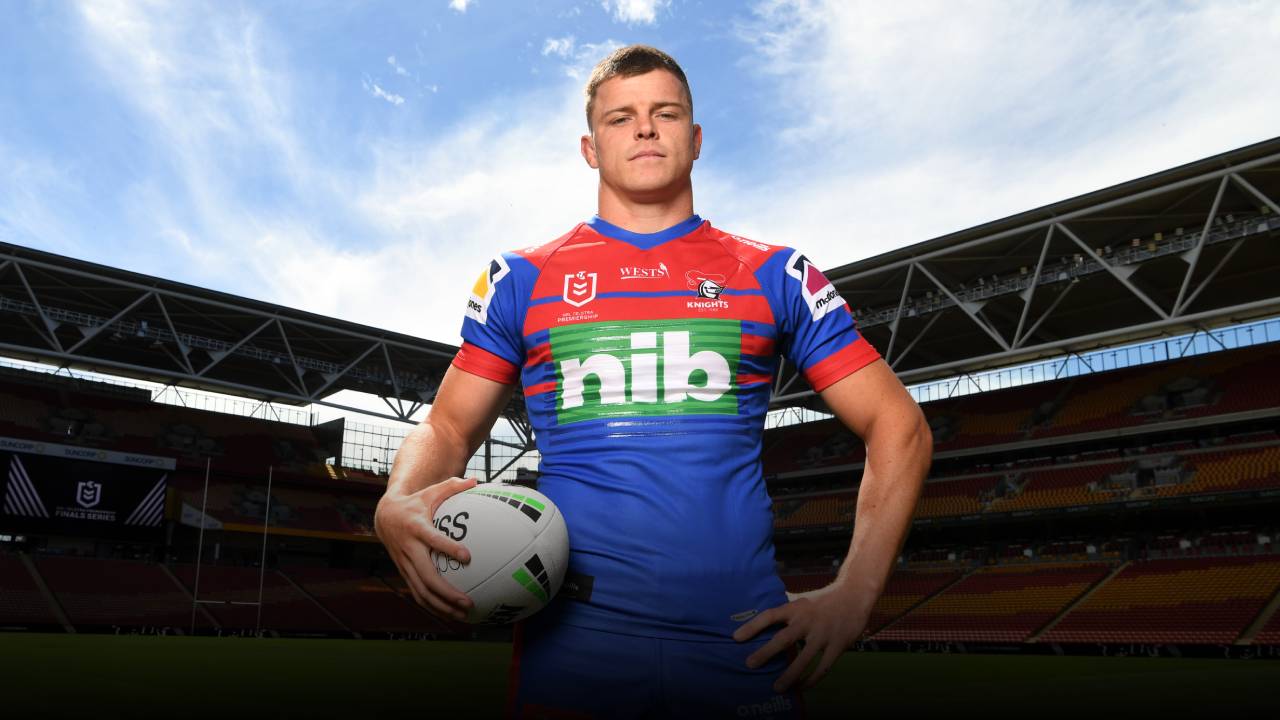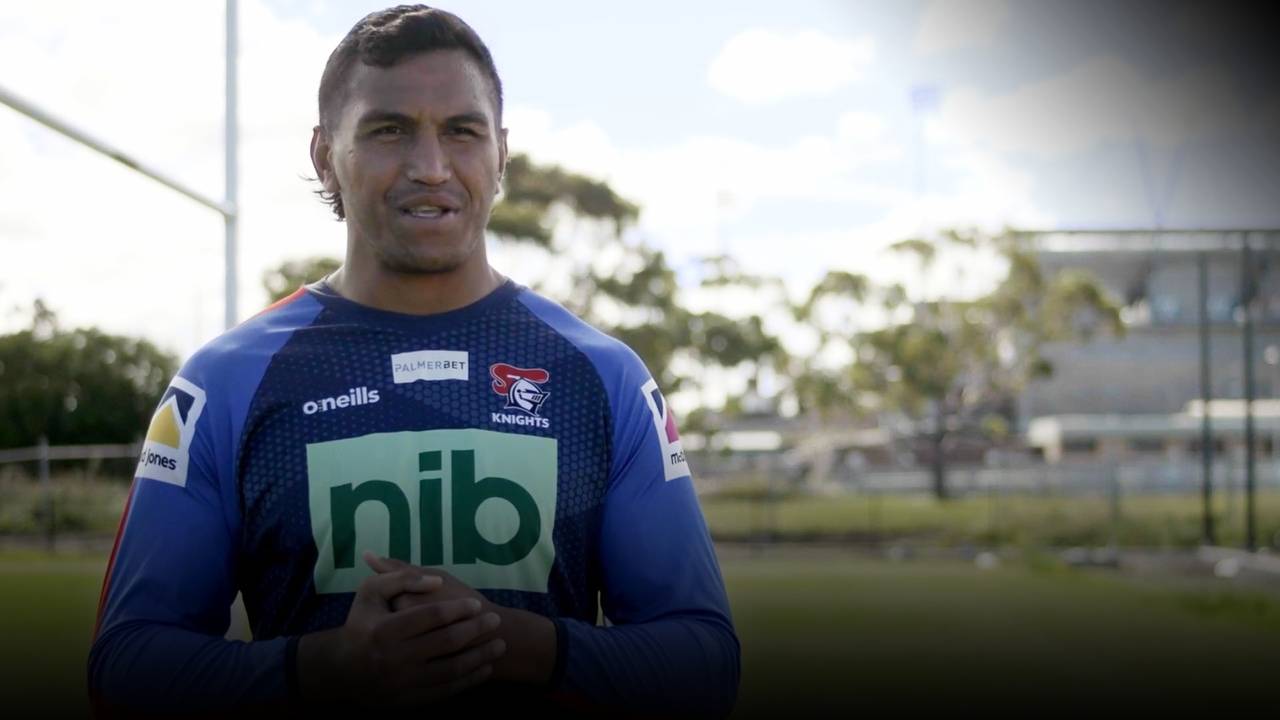I’m one of the lucky ones
As I’ve mentioned, the hardest part of being a female sportsperson is juggling family, work and footy. Everything has to be planned from Monday to Sunday.
During the week we’re up at 6am to get London ready for school. Then I head off to work from 7:15 until 3pm, in sales and administration for Carpet Court in Mascot.
I have also started sprint coaching under the best speed coach going around, Roger Fabri, which normally makes for a busy Sunday. Once footy season is over, that will replace a lot of my afternoon footy trainings.
Throughout the year, coaching and training with Roger is basically all the conditioning I need. Getting into that has been a real turning point in my career.
The other great thing about training with Roger is that we run a junior academy, where London comes along and trains right next to me. It’s good to see her enjoying herself with all the other kids while learning some good habits while she’s still young.
Once we’re done there, we normally head straight to the gym with London tagging along, keeping everyone on their toes with her larger-than-life attitude.
They’re big days, and she’s got her own busy schedule as well, swimming and training with her footy team.

I’m lucky I have a partner who is so supportive, and with help from both of our families we manage pretty well. On the days I can’t pick her up, he does. And during her footy season, he’s actually her coach, which she loves.
During my career, I’ve played with a lot of mothers that don’t have that kind of support in their lives. They have to bring their kids to every single training session, because there’s no one else to look after them.
And that’s where footy clubs can help out. The girls on the team that are injured help out a lot on the sidelines, making sure the younger kids are occupied.
For the women’s game at the moment, which isn’t fully professional, a lot of the training sessions are late at night. Being out at the training paddock at 6pm at night, with little kids running around can be tough for some mothers. But that will get easier as the game grows, and we become more professional.
I see a day coming, where clubs will be able to hire someone to look after the kids while we train. Then the women can just focus on their footy for that time, which will help us become better players and take the competition to another level.
Choosing league over union
As someone that grew up in New Zealand, it shouldn’t be a surprise that I actually come from a rugby union background.
I credit the skills I learned in rugby for making me the footy player that I am today. I started playing when I was seven years old, in Gisborne where my family lived, and I kept on with that right up until the end of high school.
Then I moved to Auckland in 2011, where I started studying at university. But I had no family around me there and by the end of the year I’d spent all my money.
By then, my mum had been living in Sydney for many years, so I thought I’d come see her and do a bit of work to save some money before moving back to New Zealand.
But once I got settled, I fell in love with Sydney. The opportunities, the good weather, the people; there was so much to like about life here, so I decided to stay.
One of the first things I did in Australia was google footy competitions in Sydney. I picked the second team that came up. I joined the Parramatta Two Blues to play rugby union and it all took off from there.
Not too long after, I was playing for the Australian XV and pushing to make the Sevens team. But with London, I just didn’t have the time to commit to a team that travelled all around the world.
All my friends were playing league, so I decided to make the switch. That was three years ago now and I haven’t looked back.
Jason Stanton was the coach of Cronulla’s women’s team back then and he invited me to play a couple of exhibition matches for the Sharks in 2017. That got me the chance to play for the Kiwi Ferns at the Rugby League World Cup and everything kind of went from there.
Even in those early days, before the NRLW, you could see that there was a lot of momentum building around the potential for a new women’s competition.
It was really exciting to be a part of that, knowing the game’s opportunity to grow. When the inaugural season was announced, there was no way I was going to miss out on being a part of it.
Last year was about finding out whether this competition is going to be a viable or not. And after seeing how successful it was on and off the park, I can definitely see a future where the women’s competition will be fully professional.
And even though we lost the grand final, none of us think of last year as a negative. Of course, it was sad to lose, but walking around the stadium and seeing all the fans cheering for us was a reminder of how far we’d come.
We were at a grand final for the NRL, performing in front of a huge crowd and we gave it our best to put on a show for all the fans. The response we got in return was very humbling.
The only time they’d cross paths with the guys was on the bus, when they were made to sit up the back and told not to bother anyone. Here at the Roosters, it’s completely different.
Since then, I’ve been working really hard to become an 80-minute player. I want to make hooker my position and I’ve been working on my fitness, so I don’t need to sub off at any point.
I’m trying to become a smarter player as well. This position is all about confidence and recognising where your opportunities are in the game, to make your mark.
Receiving an award for Player of the Year in the Harvey Norman Premiership was very humbling and recognition for all the hard work I’ve put in.
With the Roosters in the NRLW, we suffered a really close loss to the Warriors in our opener, which wasn’t the way we wanted to start the competition. We came out really aggressive and were on the front foot from the start, but we weren’t able to capitalise on our opportunities.
There were plenty of positives to take out of the game though and all us girls are still solely focused on bringing the trophy home for the Roosters this year, to repay the faith they’ve shown in us.
After that, it’s all about the Kiwi Ferns for me. I’m hoping to be a part of the squad for the Test matches and the World 9s.

The songs of my childhood
I’ve represented Australia in rugby union and New Zealand in rugby league, but it wasn’t until I was a part of the Kiwi Ferns back in 2017 that I realised just how much of my own culture I missed.
I missed out on some things from home for a long time, so being a part of that culture again was special, especially knowing how much it meant to my family seeing me play for our homeland.
It’s the little things I love, like hearing the accent and remembering just how cheeky us Kiwis are. We love teasing each other but it’s all love at the end of the day.
And as someone of Maori descent, it was special being in a team culture where we sang so many songs from my childhood and practised our haka. It was awesome being able to express ourselves in that way.
Our team song is a traditional one, called ‘te iwi e’. The whole country knows the words. Our team would sing it on the bus, in the changerooms, after games. It was very powerful.
These expressions of our culture would lift our spirits, giving us the strength to play the best footy that we could. Nothing can replicate that feeling.
More about: International rugby league | New Zealand | NRL Women's Premiership | South Sydney Rabbitohs | Sydney Roosters | Trent Robinson | Women's Sport




 Load More
Load More